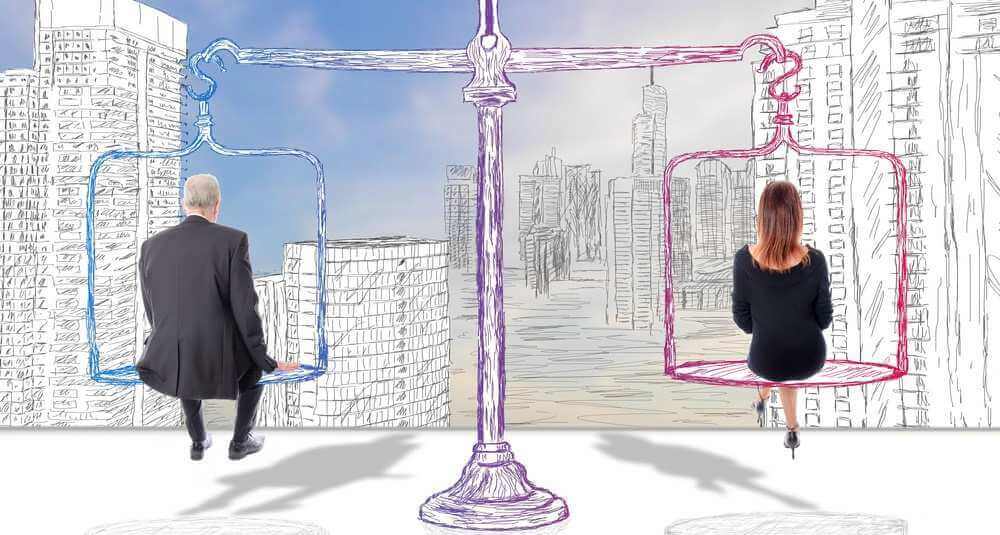Machismo is a way of thinking that holds that men are different and, in that difference, they are superior to women, although this seems to be an exaggerated way of thinking, it is one of the most shared beliefs today, reaching the point of being inserted into many institutions and traditions, this way of thinking does not end there, in fact , is the origin of many sexist or sexist behaviors.
People who have internalized such beliefs, even if they do not realize it, act with women differently than with men, tend to be more protectionist or paternalistic with women, but exclude them from tasks that presuppose characteristics considered masculine, as well as those that require strength or do not correspond to typical and traditional female roles.
- The disadvantages of machismo for women are numerous and affect all aspects of life.
- In the professional sphere.
- Women are less likely to get jobs that do not suit what the subconscious and conscious collective expect to have fewer opportunities to move to high-level positions and their wages are lower than those of men for positions that require the same skills and responsibilities.
- Not to mention job bullying?.
On a more personal level, women must meet a wide range of requirements to project an acceptable image. They should be thin, but not without curves. They need to go to work on makeup, but without exaggeration. Women should wear unique clothing patterns and always combine. They must dress bravely, but without seeming too extravagant. And preferably with makeup.
In the sexual sphere, it is assumed that women must be submissive, the classic image of the princess waiting for her prince and that of the submissive student who falls in love with the rebellious boy to which she tries to change are part of the collective imagination. Girls should expect to be conquered by boys, but as much as they wish, they cannot accept at first, because otherwise they may seem too “easy”.
Although this may seem contradictory, machismo can become toxic to men, this way of thinking and the actions to which it is associated generally have negative consequences for men, which can easily go unnoticed. We’ll talk about it below.
In the professional sphere, although men tend to earn more and there are more occupations where they have a preference for just being men, there are jobs that do not match or are simply not considered. (nurse, flight attendant, secretary) are harder to get for men, in addition, they end up being directed to jobs that require more strength and physical endurance (mining, for example) because of the increased supposed physical wear and tear.
On a personal level there is also a strong demand for men, although not as high as expected of women, the image is also a social demand and a concern for men, they need to inspire safety, and one way to do so is to have a strong body and train for hours in the gym. Still, machismo appears, for example, in the new term “daddy’s body,” which means something like “family man’s body,” and applies mainly to men.
As far as sex is concerned, the role of men is that of those who traditionally dominate and make suggestions, prince charming or rebel without cause. It is the man who takes the initiative, who idealizes and materializes madness for the woman he loves. Naturally, he must defend his honor to death and defend him at all times. In turn, men must differentiate the the difference from their peers, be the leaders of the group.
As we have already said, men must be the leaders, be the most “male”, which leads to risky behaviors. Conquering leaders and guardians can engage in battles, cruel vendettas, or activities that endanger their health to prove their worth. Risky behaviors are associated with drug use and gambling. Men are under more pressure from groups to take drugs and need to be more resilient than women. In fact, the man who is not resilient already receives a prefabricated label, that of “weak”.
One of the best contexts for becoming aware of the danger of these risky behaviors is that of war, when a state declares war most of the soldiers who show up are men, military service is also more unfavourable to men.
All these situations described give rise to the last and most tragic consequence of machismo, death. Men die, on average, at least six years before women. Machismo, which theoretically puts men in a privileged position, not only kills women. Behaviors, encouraged by machismo, erode the health of men who, over time, suffer the consequences, even when they fail to determine their origin.

